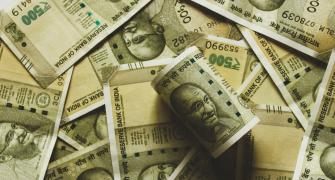What people tend to forget is that India is the most densely populated of the large nations," says Adi Godrej. At that moment the urbane Indian billionaire and his guest are in the family's glass-and-steel headquarters in northern Mumbai, and Adi's impeccably mannered butler in a black Nehru jacket is serving a lunch of lentil salad, a potage and a masala-style chicken.
"We're ten times more densely populated than the US and three (more than) China," he continues. "Land is scarce."
In pictures:
The richest Indians
The world's densest cities
Adi, who ranks ninth on our list of India's 40 richest, runs $1.7 billion (revenues) Godrej Industries. His family founded a lockmaking company in 1897 but made its name in the 1920s when it produced soap made from vegetable oil, rather than animal tallow, a product that proved a hit with vegetarian Hindus.
Godrej has since become a revered brand with the middle class, found on everything from washing machines to hair dyes. An estimated 400 million Indians use a Godrej product daily.
Now Adi is setting his sights on real estate development, despite a recent slowdown. He is well positioned. During World War II his grandfather bought just under 3,000 acres in Mumbai at auction from the cash-strapped British. He bought a few hundred additional acres soon after. While Adi, 66, won't say what the family paid, it was certainly a bargain by today's standards. The 3,500-acre parcel is worth an estimated $3 billion.
For many years restrictive land laws stopped Godrej from developing the sites. Why? The local government had always been able to approve greenfield developments, but on a "case-by-case" basis, which, as one Indian businessman once explained, really means a "suitcase-by-suitcase" basis. Adi, protective of the family brand's reputation and integrity, chose instead to sit on his holdings.
In pictures:
Relentlessly rich
While biding its time, the family set up a real estate development subsidiary, Godrej Properties, in 1990 and launched joint ventures with other landowners. "Most people distrust property developers," explains Adi, as he moves to the suede couch for a tea robustly spiked with garam masala. "So a good brand like Godrej adds value to the developments." Planet Godrej, for example, is a South Mumbai development with partner Simplex Mills. It includes five 50-story towers--India's tallest occupied buildings--built where textile mills once stood.
The chance to develop its own massive landholding came a year ago when the local government finally rewrote the Urban Land Ceiling Act and enacted a more transparent approval process. "We were in some ways protected," says Adi. "Had the act been revised earlier, we would have developed the property when prices were lower and probably in a very different way."
The act's passage coincided with a slowdown in India's hot property sector. According to Indian Realty News, new projects have fallen by 30 per cent compared with the same period a year ago; retail and office rental rates have fallen by 25 per cent to 30 per cent in cities like Mumbai, Bangalore and Kolkata. But interest rates are coming down, and India's largest real estate developer, dlf, recently stated prices should stabilize in the next eight months.
Such short-term worries don't bother Adi, who is now finalizing architectural plans for a development similar to London's Canary Wharf on the family's Mumbai land. It will encompass residential, industrial, office and retail space. He also plans to make land available to the government to build a subway station to ease infrastructure problems.
These plans will have to be approved by a local board. No small thing since 1,900 of the acres are mostly covered in mangrove trees and have severe building restrictions, though some of them may be tapped for eco-sensitive projects.
To help pay for it, Adi wants to raise $125 million by listing Godrej Properties, now owned 83 per cent by the family's main holding company and 17 per cent by the family directly. If he has to postpone the offering, he says he has access to other financing.
Adi's son, Pirojsha, who is married to an American, has just returned with a Columbia University MBA to help run the unit. He will need a bit of his family's patience. After all, says his dad, "Property will be our big push over the next 10 to 20 years."








